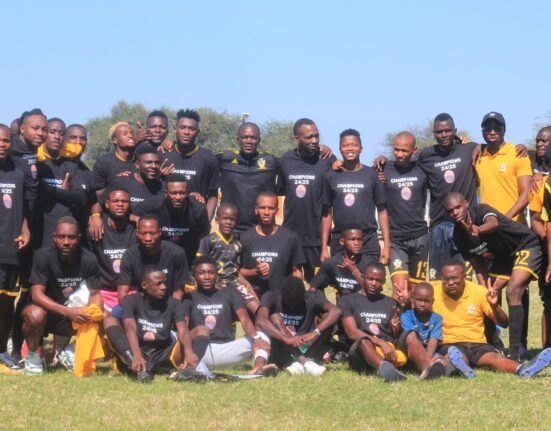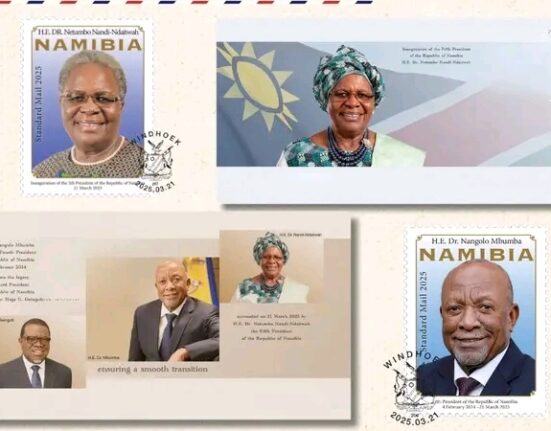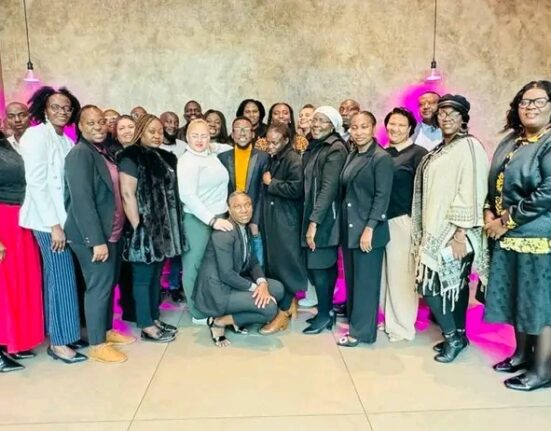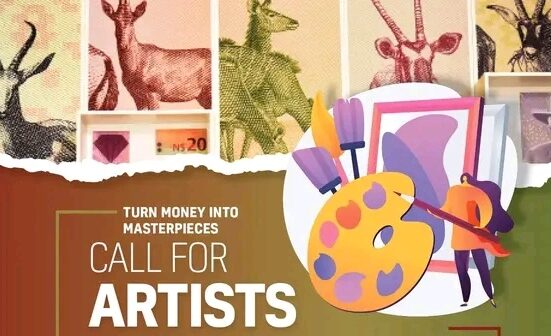D-Naff, one of Namibia’s most iconic hip-hop artists, has become a household name and a prominent figure in the Namibian music scene. Known for his innovative sound, exceptional lyrical skills, and unique storytelling ability, D-Naff has carved a niche for himself in the world of hip-hop, not only in Namibia but across the African continent. This article delves into the rise of D-Naff, his impact on the Namibian music scene, his musical journey, and his role in shaping the future of hip-hop in Namibia.
Early Life and Background
D-Naff, born Naftalie Kalili on June 6, 1988, in Windhoek, Namibia, grew up with a passion for music and an innate love for hip-hop. Raised in a multicultural environment, he was exposed to various musical influences from an early age, including both African rhythms and Western genres. However, it was hip-hop that captured his heart, and from his early teens, D-Naff started experimenting with rap music.
His upbringing in Namibia, a country with a rich cultural heritage and history, played a significant role in shaping his music and artistic direction. D-Naff was inspired by the struggles and triumphs of his people, as well as global hip-hop influences, which pushed him to use music as a medium to tell powerful stories, address social issues, and express personal experiences.
Discovery and Early Music Career
D-Naff’s journey into the world of music began in his teenage years when he started rapping in local talent shows and collaborating with other aspiring artists in Namibia. At first, he was just another aspiring rapper with dreams of making it big, but his raw talent, unique flow, and captivating lyrics quickly set him apart from his peers.
In the early stages of his career, D-Naff faced numerous challenges, including limited resources and opportunities. However, his determination and relentless work ethic pushed him to overcome these obstacles. He began recording his music, first independently and later in collaboration with local producers, which helped him develop his signature sound.
In 2010, D-Naff gained recognition with the release of his debut album, “This is Me”. The album was an instant hit in Namibia, with tracks that showcased his lyrical prowess and his ability to blend hip-hop with local influences. His unique ability to narrate powerful stories about his life and experiences, mixed with a blend of African and international beats, struck a chord with his audience. This marked the beginning of his rise to prominence in the Namibian music scene.
Breakthrough and Rise to Fame
D-Naff’s breakthrough came with the release of “The Revolution” in 2012, an album that cemented his place as a leading figure in Namibia’s hip-hop scene. The album featured several hit singles, including “Zombieland,” “One Day,” and “Ongholo,” which became anthems for Namibia’s youth. His ability to seamlessly blend conscious hip-hop with commercial appeal made him an instant favorite among fans.
“The Revolution” tackled important themes, from social issues and personal growth to struggles faced by the youth of Namibia and Africa at large. D-Naff’s lyrics were powerful, often touching on issues like inequality, corruption, poverty, and the importance of education. His music was not just about entertaining, but also about using his platform to speak on issues that affected his community.
As D-Naff continued to rise in prominence, his music gained attention beyond Namibia’s borders. He began performing at regional music festivals and collaborating with artists from other African countries, further expanding his reach and influence. His collaborations with artists such as Jemax, Tswazis, and Fille helped him gain recognition in the Southern African region, with his music gaining airplay in countries like South Africa, Botswana, and Zimbabwe.
D-Naff’s Impact on the Namibian Hip-Hop Scene
D-Naff is often credited with transforming the Namibian hip-hop scene. Before his rise, Namibia had limited representation in the global hip-hop world, and the genre itself struggled to gain mainstream acceptance. D-Naff changed this by infusing his music with elements of Namibian culture and history, which resonated with local audiences and helped hip-hop gain a stronger foothold in the country.
As a versatile artist, D-Naff also embraced collaborations with musicians from various genres, including R&B, reggae, and Afrobeat. This helped him build a diverse fan base while showcasing the versatility of Namibian hip-hop. His collaborations not only elevated his music but also played a key role in promoting local artists and bringing them into the limelight.
In addition to his musical contributions, D-Naff has also served as a mentor to many up-and-coming Namibian artists. He has been involved in various community outreach initiatives and has used his platform to inspire young people to pursue their passions and stay true to themselves. His influence extends beyond music, as he continues to be a prominent figure in Namibian pop culture and a role model for the youth.
Notable Achievements and Awards
Over the years, D-Naff has been recognized with numerous awards and accolades, solidifying his status as one of Namibia’s most influential artists. His contributions to the Namibian music scene have earned him several prestigious awards, including Best Hip-Hop Artist at the Namibian Music Awards (NMAs) multiple times. His album “The Revolution” was nominated for Album of the Year, and his hit single “Zombieland” won Song of the Year at the same awards ceremony.
D-Naff’s achievements have extended beyond the Namibian borders, with his music gaining recognition at international platforms. He has performed at major music festivals such as the Hennessy Artistry Concert and the Sauti Soul Festival, gaining international recognition for his exceptional talent and innovative approach to hip-hop.
D-Naff’s Influence on African Hip-Hop and Global Appeal
While D-Naff’s career began in Namibia, his influence has reached far beyond the country’s borders. His unique sound, which fuses local African rhythms with global hip-hop influences, has made him a key player in the Southern African hip-hop scene. He is often seen as a bridge between international hip-hop and the sounds of Namibia and the wider African continent.
Through his music, D-Naff has addressed important issues such as identity, inequality, and social justice, resonating with audiences worldwide. His ability to blend African languages, such as Khoekhoe, Otjiherero, and Afrikaans, with English has helped his music reach a broader audience and further establish his presence in the global music scene.
The Future of D-Naff and Namibian Hip-Hop
As of today, D-Naff remains at the forefront of the Namibian hip-hop scene. His influence continues to shape the genre’s evolution in the country and across the African continent. His most recent projects, including his album “#AfroKing,” have garnered attention for their innovative fusion of African sounds and modern hip-hop, proving that D-Naff is not only a pioneer but also a continually evolving force in the industry.
As Namibian hip-hop continues to grow in popularity, D-Naff’s legacy is sure to be felt for generations to come. His ability to fuse cultural authenticity with mainstream appeal has set the stage for future artists to follow in his footsteps.
D-Naff’s rise to fame as Namibia’s hip-hop king is a story of talent, perseverance, and dedication. From humble beginnings to becoming a dominant force in Southern Africa’s hip-hop scene, D-Naff’s journey has been nothing short of extraordinary. Through his music, he has not only entertained but also inspired change, pushing boundaries and using his platform to uplift his community and culture. As he continues to rise, D-Naff’s legacy will undoubtedly inspire the next generation of hip-hop artists in Namibia and beyond.
Join 'Namibia Today' WhatsApp Channel
Get the breaking news in Namibia — direct to your WhatsApp.
CLICK HERE TO JOIN












